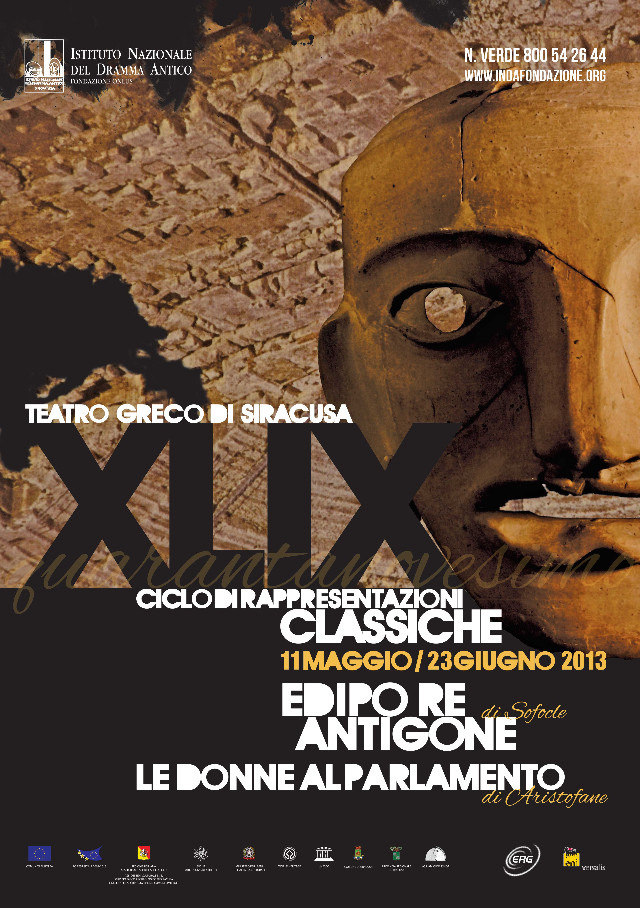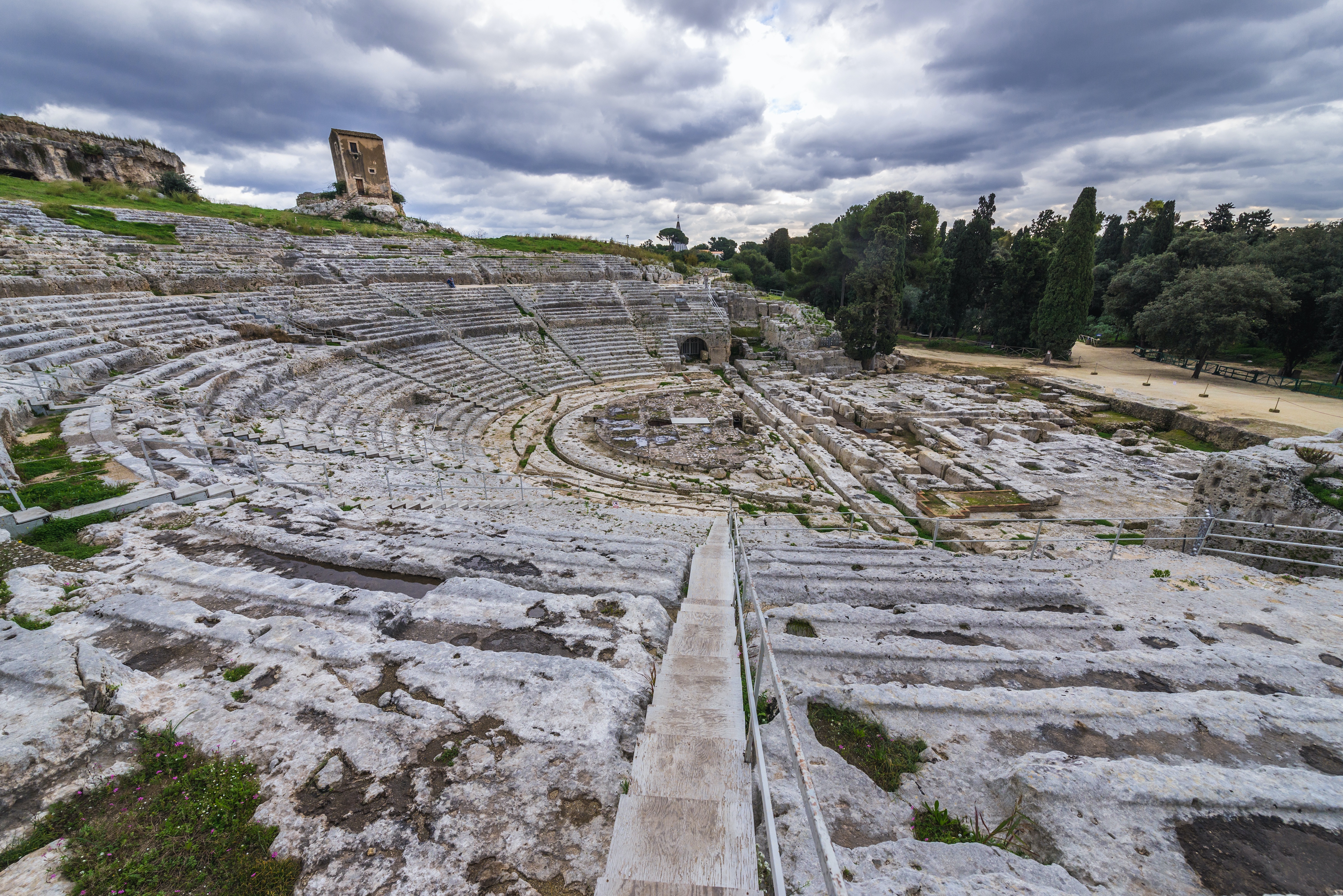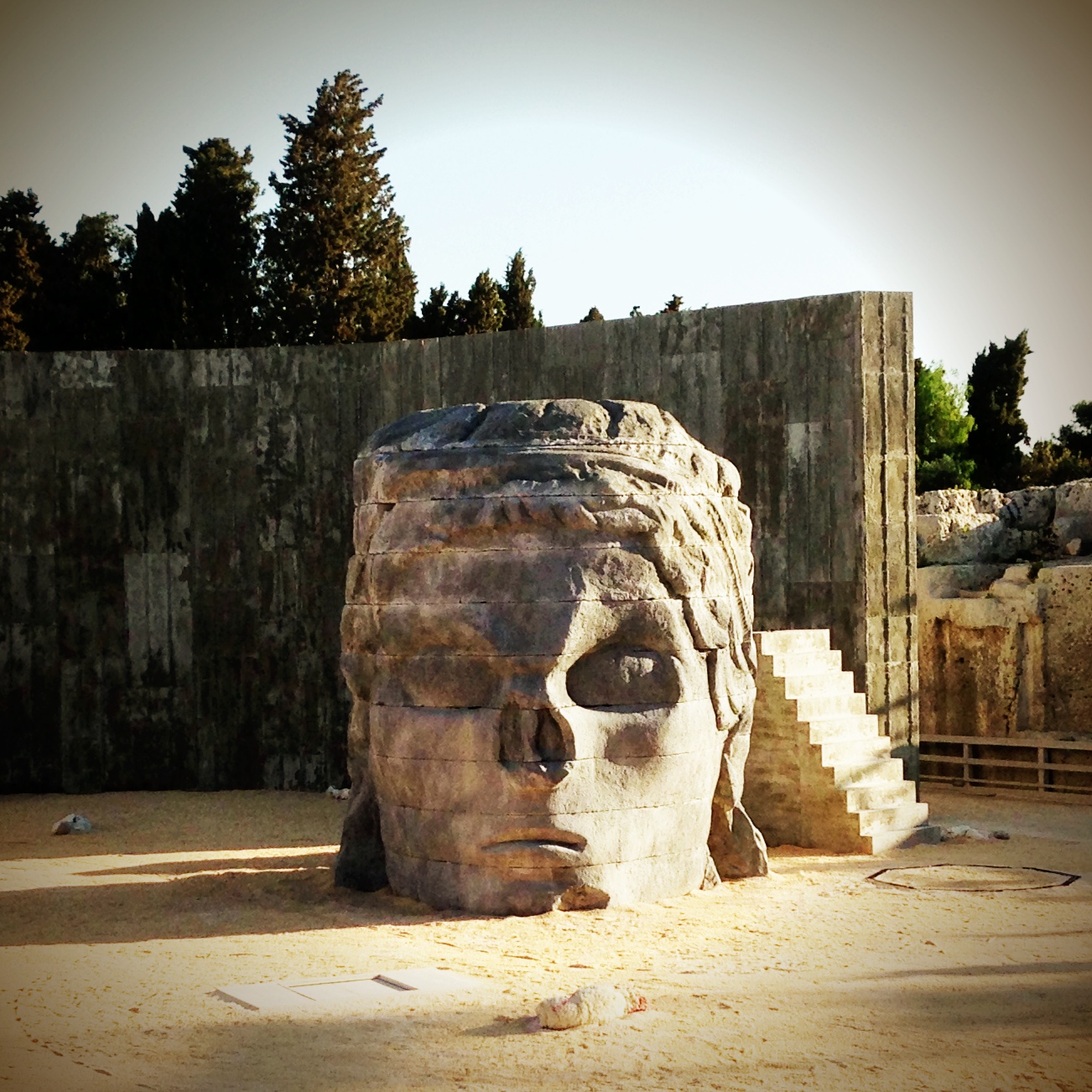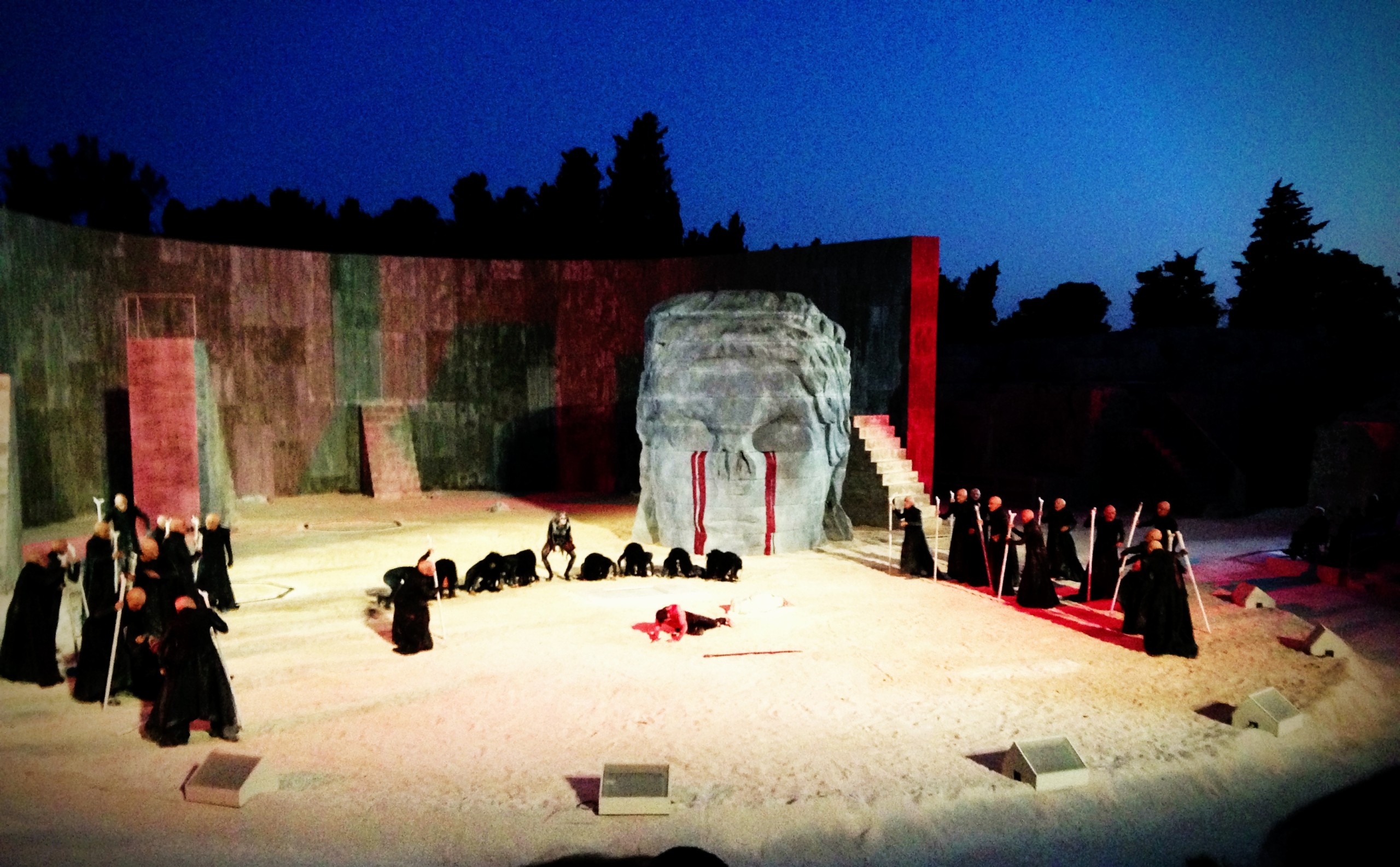The swallows arrive above the tall cypress trees surrounding the ancient Greek amphitheater in Siracusa. I take my seat among the hundreds who enter the Teatro Greco quietly, almost reverently. We have gathered here to watch a modern production of Sophocles’ Oedipus Rex.
The stones of this performance venue were placed in the 5th Century BC. Improvements were made in the 3rd Century BC, and the Romans, during their occupation, changed the theater to accommodate their purposes.
Before us, a low stone wall surrounds a sand filled orchestra. In the proscenium, just off of the orchestra, stands an enormous sculpture of a man’s head, looking as if cast from stone. The sculpture confronts me; it challenges me by its scale and masculine power, as if to say, “Pay special attention, do not be distracted”. Behind the sculpture is a skene, a screen, illuminated from behind. Upon this skene play visualizations of the walls of Thebes and other important images in support of the play.
All around me I see groups of young students, some from high schools, some from university. We all sit quietly and respectfully, noting the slow descent of evening. A slight breeze cools the air around us. Some of the audience members read the libretto; some sit with eyes closed as if meditating or praying in the moments before Sophocles’ ancient play begins.
The sky slowly envelopes the stage in darkness. The theater lights, above and behind us, brighten. The Chorus enters from stage right, clad in draped black cassocks and wearing identical masks, coalescing the impression they are one presence, one consciousness. They move in unison to the center of the Orchestra.
The Play
This play, Oedipus Rex, represents for many scholars and lovers of ancient Greek tragedies, the pinnacle of the genre. It follows the story of King Oedipus of Thebes. Over the course of his young life, he discovers he has unwittingly killed his own father, Laius, and in the aftermath of that murder, he has married his own mother, Jocasta. The play moves through scene after scene. Full darkness enwraps the perimeter of the theater. The stage becomes a floating dream before us: no modern time exists outside the limits of the world illuminated before us. We are spellbound.
The Chorus appears, this time with their heads wrapped in blindfolds, a foreshadowing. They address the audience, a brief pause, then silence.
Oedipus sprints, screaming, out of a cave at stage right, in the midst of an irreversible madness. Blood covers his face, the aftermath of self-mutilation by tearing his eyes from their sockets. Some in the crowd join him in a scream. Blood begins to ooze from the eyes of the huge sculpture, an inexorable image of horror, of the terrible toll the gods take on those who err.
We have become one with the story. Tears come to my eyes. It is the most moving, terrifying, real moment of any play I have ever seen. The bleeding eyes of the huge sculpture physically expresses kinship with Oedipus’ terrible actions, what he has done to himself.
The play comes to a close. We stand in applause for many minutes. No one leaves until the audience’s radiant approval dims. Few people talk as we leave the theater. Perhaps so dramatic a story has stunned us into shock. Perhaps we are slowly aware of the modern world, pressing around us.
I carry another realization from the amphitheater; though the audience contains a blend of high school and university students and others, not one cell phone interrupted the drama, not one person left the theater during the play.

Ongoing Tradition at Teatro Greco
The Annual Greek Tragedy performances represent the crowning glory of the theater season in Sicily. People come from around the world to attend the performances. The Italian National Foundation for Ancient Drama, INDA, has produced plays in this place since 1914. During that time, the organization has united some of the finest stage directors, designers, and performers in the world. The performances never disappoint.
The season usually occurs from early July to late August. Reservations are strongly encouraged. You will be forever changed by an evening in Siracusa’s Teatro Greco.



